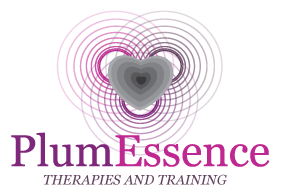This is the 16th in a series of blogs, using answers I used to pass Mental Health qualifications. This blog leads on from the Anxiety series and helps people have some understanding of how phobias could be managed.
The next series of blogs will be about depression.
As with many mental health subjects, they can all be massive topics with reams of books written on them. I will aim to break phobias down into 4 easily read blogs, describing what they are, the effects they have on people and how they can be treated and managed.
I strongly believe there is no one-size-fits all approach to managing any kind of mental health condition; the main reasons why I’m not a massive advocate of medication. I prefer to consider natural, healthy ways to recognise and manage any kind of mental ill health, tailoring each treatment and therapy to suit each individual.
Phobias are about intense fear which produce physical and psychological feelings.
Examples of self-help for phobias:
People can learn techniques to help them manage their phobias.
Mindfulness techniques can calm the mind, focus the breathing, and help the person focus on the positives.
There could be plenty of self-help books, videos, and audio facilities that a person can use to help themselves.
Self-help groups managed and operated by local authorities, community groups or charity organisations may be able available and could provide good sources of information.
GP surgeries can provide a place to confide and obtain prescription medications. GPs can also refer to counsellors, other healthcare professionals and any social support groups which may help the person.
Admitting to the phobias and trusting someone to confide can be a first step to seeking help, and for that person to help provide support and help.
Examples of possible treatments for phobias:
Many mind-management and talking therapies are considered to be the most effective for many phobias.
Hypnotherapy is an excellent therapy for treating phobias and techniques can be learnt as self-hypnosis for the person to continue to manage their phobias in future.
NLP, CBT, Havening and EFT are all therapy related treatments where techniques are used for people to complete self-treatments at their own time and draw upon them in their immediate situations of facing the phobias.
Counselling and psychotherapy could get to the root causes of the phobias, which can help as a treatment alone or be combined with the other treatments.
To face specific phobias at a particular time, i.e. for the fear of flying, GP’s can prescribe sedatives, which of course should be considered as short-term measures.
Prescribed medications from mild sedatives and anti-depressants to beta blockers can inhibit the physiological responses but these are considered short-term because of the risk of reliance and addiction.
‘Face the fear and do it anyway’ is where the person can face the fears, slowly but surely, potentially resulting in full-blown recovery.
Tracey of PlumEssence Therapies and Training is a qualified stress management consultant, mental health first aider, clinical hypnotherapist and body work therapist focusing on helping reduce and alleviate concerns connected to both physical and emotional wellbeing. Tracey is also a teacher and trainer, delivering workshops and accredited mental health courses.
Tracey is available for a no-obligation chat to see how we could work together on 01889 808388 or tracey@plumessencetherapies.co.uk
